How Donald Trump’s business ties are already jeopardising US interests
A President-elect whose company interests are inextricably linked to foreign leaders is treading a dangerous line. So, when Trump decides policy involving China, the Philippines, Turkey, Taiwan, Japan or Argentina, will the needs of the nation be outweighed by those of the family bank balance?
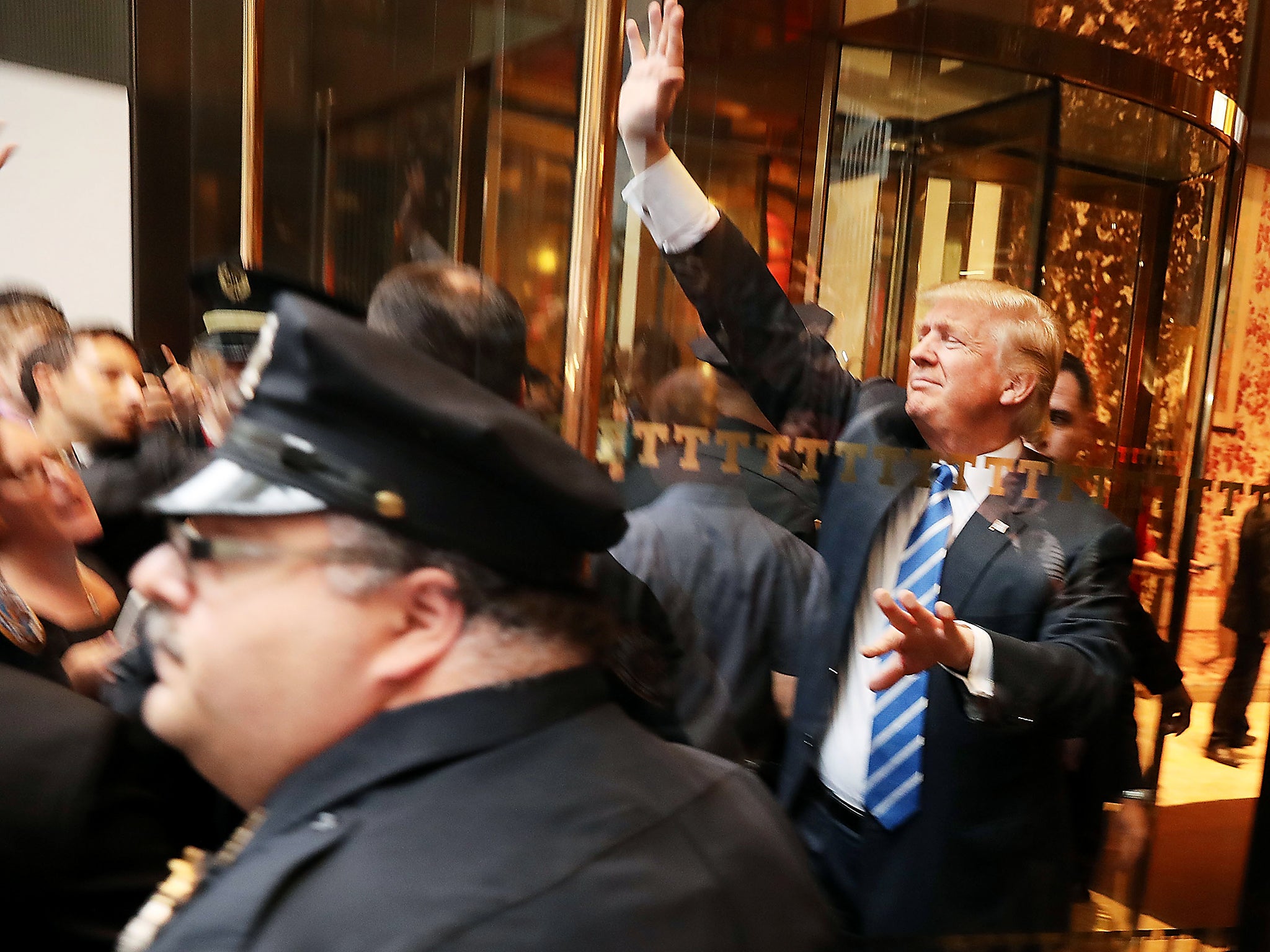
Your support helps us to tell the story
From reproductive rights to climate change to Big Tech, The Independent is on the ground when the story is developing. Whether it's investigating the financials of Elon Musk's pro-Trump PAC or producing our latest documentary, 'The A Word', which shines a light on the American women fighting for reproductive rights, we know how important it is to parse out the facts from the messaging.
At such a critical moment in US history, we need reporters on the ground. Your donation allows us to keep sending journalists to speak to both sides of the story.
The Independent is trusted by Americans across the entire political spectrum. And unlike many other quality news outlets, we choose not to lock Americans out of our reporting and analysis with paywalls. We believe quality journalism should be available to everyone, paid for by those who can afford it.
Your support makes all the difference.Donald Trump hasn’t been sworn in yet, but he is already making decisions and issuing statements to world leaders that radically depart from American foreign policy, all to the benefit of his family’s corporate empire. Because of this, the next president of the United States is already vulnerable to undue influence by other nations, including through bribery and even blackmail.
Given the vast scope of the clashes between the Trumps’ extensive business dealings and the interests of America, the President-elect vowed during the campaign to eliminate potential conflicts by severing ties to his company – yet, with only weeks to go until he takes the oath of office, he hasn’t laid out a credible plan. Trump’s sole suggestion to date – a “blind trust” run by his children – would not eliminate the conflicts, given that the money generated would still go to his family. Moreover, such a trust would be anything but blind: If Trump Tower Moscow goes under construction, Trump will see it while in Russia and know that his kids are making millions of dollars from it. That is why foreign leaders hoping to curry favour will do everything they can to help Trump’s family erect more buildings, sell more jewellery and make money through any means possible. Even if the family steps away from its company while Trump is President, every nation on Earth will know that doing business with the Trump Organisation will one day benefit the family. The only way to eliminate the conflicts – sell the company, divvy up the proceeds – has been rejected by Trump, whose transition team refused to respond to any questions from Newsweek for this article.
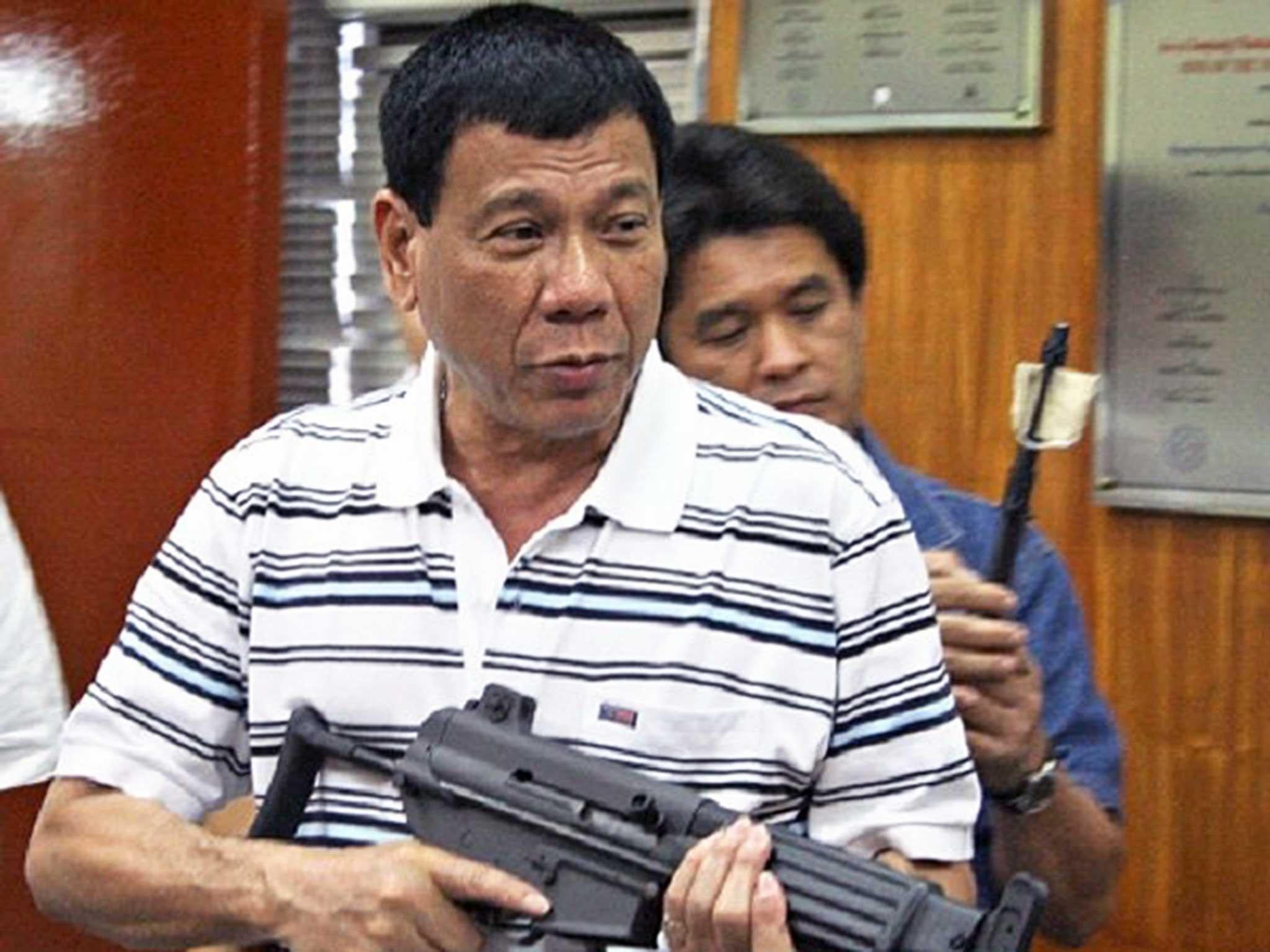
Some of the most egregious conflicts that have emerged involve countries in Asia and its subregions, particularly the Philippines. Global policy on the Philippines has been fraught with tension since the election in May of Rodrigo Duterte as the country’s president. Duterte, who boasted to voters during the campaign that he had shot a fellow law school student for teasing him, has championed the killing of suspected criminals and street children by vigilante death squads. In 2015, he said that if he became president, up to 100,000 people suspected of links to illegal drugs could be killed. Just months after his election, Duterte said he was eager to lead a genocide of up to 3 million drug addicts. “I’d be happy to slaughter them,” he said. “At least if Germany had Hitler, the Philippines would have [me].” And in September, an admitted hit man testified to a Senate committee in the Philippines that Duterte presided over a killing campaign when he was mayor of Davao City.
As president, Duterte rapidly showed he was little concerned with the legal protections afforded to Filipinos suspected of crimes. During his first three months in office, 850 Filipinos were killed by death squads, apparently on little more than the suspicion that they were drug users and dealers. Since then, the estimated death toll has climbed to 4,500. The carnage has been condemned throughout the Western world; the Parliament of the European Union and two United Nations human rights experts have urged Duterte to end the massacre. One of the experts even appeared to suggest that Duterte and his government could be held legally accountable for committing mass murder in violation of international law. “Claims to fight illicit drug trade do not absolve the government from its international legal obligations and do not shield state actors or others from responsibility for illegal killings,” said Agnes Callamard, the UN special rapporteur on summary executions. In response to the denunciations, Duterte lashed out at the United States, threatening to align his country more with China.
Despite universal condemnation of the ongoing slaughter of Filipinos, Trump signalled his approval of Duterte’s policies during a phone call on 2 December. According to Duterte – an account that has gone uncontested by Trump – the President-elect endorsed his tactics as “the right way”. Duterte added: “[Trump] was wishing me success in my campaign against the drug problem.” (He also said Trump invited him to the White House, a courtesy not yet extended to Theresa May, the prime minister of America’s most important strategic ally.)
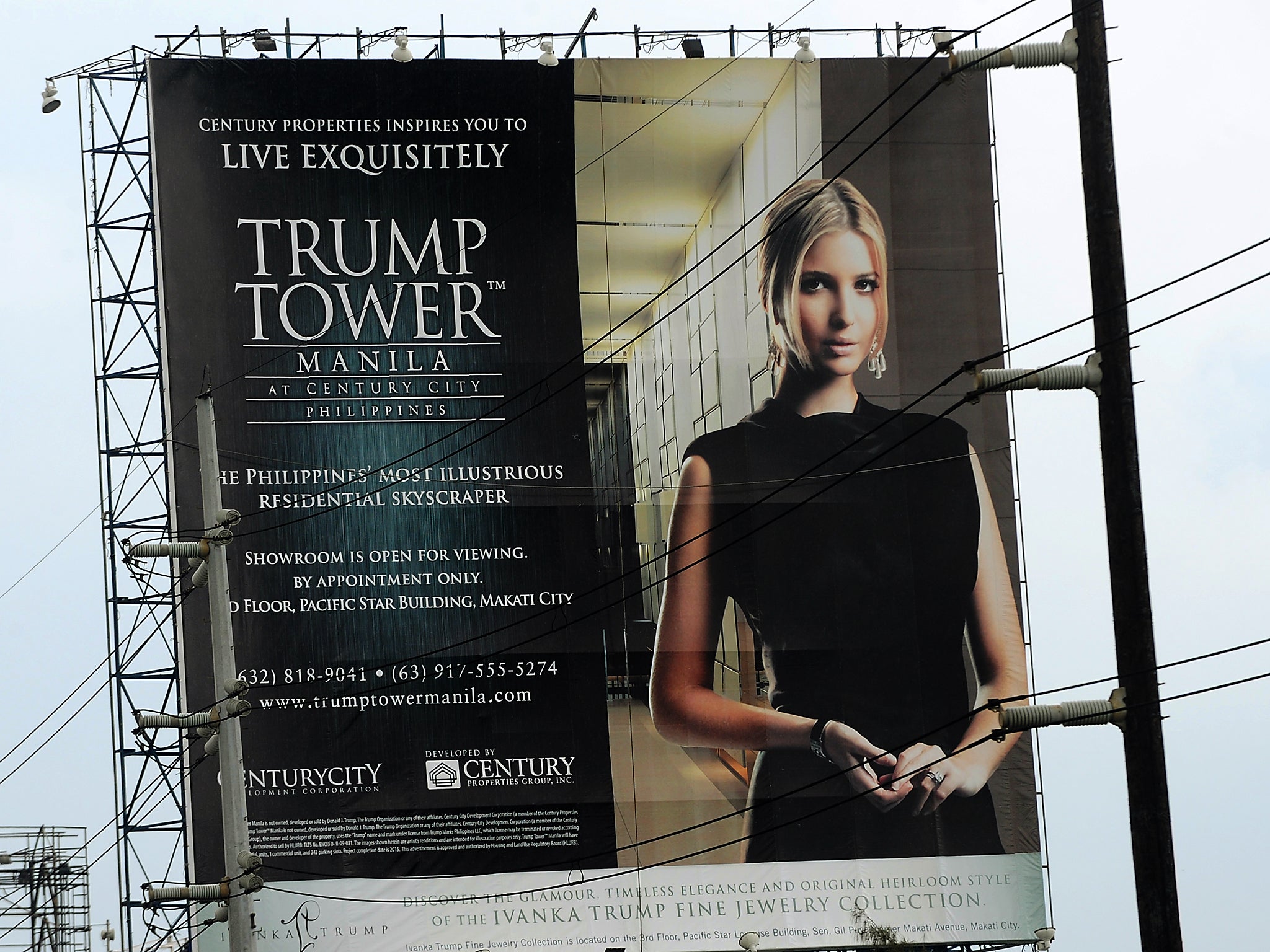
The Trump transition team did not respond to Newsweek when asked if the President-elect had intended to signal his approval of the carnage in the Philippines; did not believe the conclusions of the UN and Western nations that Duterte ordered the killings; or simply did not understand the magnitude of his comments. One thing, however, is clear: the Trump family has an enormous financial interest in keeping Duterte happy. Trump Tower at Century City in Makati, Philippines, is on the verge of completion, with potential buyers having placed deposits on at least 94 per cent of the condominiums, according to Century Properties, the Trump Organisation’s business partner there. During the US presidential campaign, Trump’s sons Donald Jr and Eric travelled to Makati to shovel some dirt in a ceremony to celebrate the structural completion of the building; a photograph of the two men shovelling alongside top Century Properties executives was posted on the building’s website. On that same website, a line of jewellery by Trump’s daughter Ivanka is offered for sale, and it is expected to be available for purchase at the $150m (£121m) property. As with almost every property with Trump’s name on it built over the past decade, his company is not the developer; it merely sold its name to Century Properties to use on the building. Although details of the transaction are not public, contracts for other Trump branding deals reviewed by Newsweek show that they require a multimillion-dollar up-front payment as well as up to 25 per cent of the developer’s revenue, year after year. So, under the deal, Trump’s children will be paid millions of dollars throughout their father’s presidency by Jose EB Antonio, the head of Century Properties.
Duterte recently named Antonio the special government envoy to the United States. The conflicts here could not be more troubling or more blatant: President Trump will be discussing US policy in Southeast Asia with one of his (or his children’s) business partners, a man who is the official representative of a foreign leader who likens himself to Hitler. Also note that the Trump family has an enormous financial interest in Duterte’s deadly campaign: rooting out crime in the Philippines is good for the real estate values.
The Trump family’s dealings in the Philippines will set off a constitutional crisis on the first day of Trump’s presidency, if anyone in the federal government decides to abide by the law. There is serious debate as to whether Trump will be violating the Constitution’s Emoluments Clause – which prohibits office holders from accepting gifts from foreign states – since the majority of his company’s business is with other corporations and developers. That is not the case in the Philippines. The man writing millions of dollars’ worth of cheques to the Trump family is the Duterte government’s special representative to the United States. To argue that these payments will be constitutional if they are paid to the Trump children, and not to Trump personally, is absurd. This conflict demands congressional hearings, and could be an impeachable offence.
This unyielding principle that foreign powers cannot be allowed to hold sway over a president dates back to the Founding Fathers. In Federalist 68, Alexander Hamilton wrote of the dangers of such a scenario. “Nothing was more to be desired than that every practicable obstacle should be opposed to cabal, intrigue, and corruption,” he wrote in reference to the powers bestowed in the constitution. “These most deadly adversaries of republican government might naturally have been expected to make their approaches from more than one quarter, but chiefly from the desire in foreign powers to gain an improper ascendant in our councils.”
Duterte has extraordinary leverage against Trump, and no one will know what impact that might have on the future president’s decision-making
Trump’s conflicts of interest in the Philippines cannot be resolved so long as anyone in his family has an interest in the building there. Even if his business partner, Antonio, is removed as Duterte’s special envoy, Trump won’t simply forget that the Makati building exists, that the authoritarian Philippine president has the power to damage the Trump family’s financial interests there and that the protection of what is now a high-profile target for attacks is in Duterte’s hands. (In the past three years, there have been nine strikes in the Philippines. The most recent, in September, was a bombing that killed 15 people and injured 70; in response, Duterte declared that the country was in a “state of lawlessness” and ordered police and the military to search all cars and citizens at checkpoints.)
The result of all this is that Duterte has extraordinary leverage against Trump, and no one will know what impact that might have on the future president’s decision-making. For example, will Trump ignore the promises he made during the campaign on immigration when it comes to the Philippines, given the devastating impact it could have on the economy there?
A report by the research division of Nomura Securities concluded that, under Trump’s declared policies, “the Philippines’ economy stands to lose the most” of all countries in Southeast Asia. And because many Filipino guest labourers in the United States are undocumented, the report said that a tightening of immigration policies could lead to fewer migrant workers from that country. “This could impact remittances inflows back to the Philippines,” the report says. “The US is host to 34.5 per cent of the total overseas Filipino population, and we estimate accounts for about 31 per cent of total worker remittances.” According to the Philippine Statistics Authority, remittances from the United States totalled almost $6bn in the first seven months of 2016. Translation: under Trump’s immigration policies, huge supports for the Filipino economy could collapse. On 15 November, Moody’s announced that Trump’s policies would negatively affect the Philippines’s credit rating, which could thwart Duterte from keeping his campaign promises of tax cuts and greater spending on infrastructure. Duterte could easily punish Trump for undermining his domestic agenda in the Philippines by taking actions against the family’s business interests. And Trump knows that anything he does to alienate Duterte or harm the Philippine economy could threaten his family’s wealth.
Trump also has serious conflicts of interest regarding China. Part of this, once again, traces from the Philippines. Trump has vowed to label China a “currency manipulator” that artificially drives down the value of the renminbi, which would make Chinese goods cheaper to import. That would allow the United States to impose duties on Chinese imports to offset any currency manipulation.
China is one of the top two export destinations for the Philippines, with about 55 per cent of that trade coming from the electronics business, according to the Philippines Statistics Authority. China then uses a large portion of those Philippines imports for the manufacture of products sold to the United States. Like an international trade version of toppling dominoes, American rules that decrease imports into the United States will, in turn, slam the largest Philippines export business, roiling that country’s economy. The last domino hits Trump Tower at Century City: the global property consultancy services company CB Richard Ellis has attributed increased demand for luxury condominiums in the Philippines to the country’s growing economy. Impose duties on Chinese imports to America today and Trump Tower in the Philippines could fall into bankruptcy soon after, costing the president’s children millions of dollars.
So if Trump reverses his promise to have China declared a currency manipulator on day one of his presidency, would it be because someone explained to him that the renminbi has been going up in value over the past 12 months or because he now sees the possibly dire implications to the American economy from a trade war with China? Or would it be because he wants his kids’ business in the Philippines to prosper? No one but Donald Trump will ever know the truth.
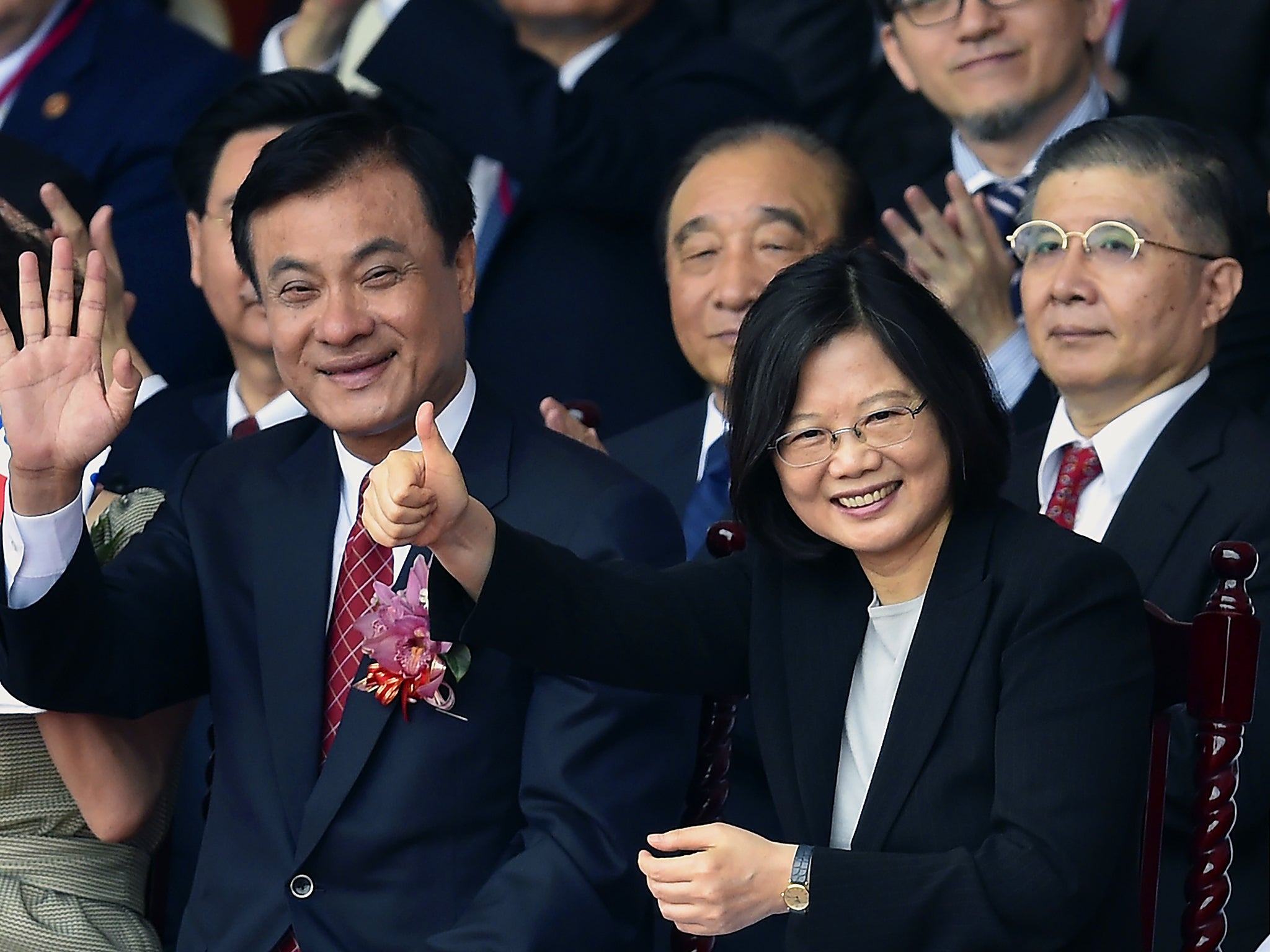
There’s a similarly disturbing conundrum in Taiwan. On 2 December, Trump – with no consultation with State Department specialists on the delicate relations between American and China – upended almost 40 years of US policy by taking a phone call from the president of Taiwan, which broke away from the mainland in 1949. The question of whether Taiwan is an independent country or part of China proved to be a major diplomatic challenge after President Richard Nixon normalised relations with China. To avoid conflict, the United States adopted what is called the “One China” policy, under which the US maintains unofficial relations with Taiwan but does not consider it to be its own country. Because America does not recognise Taiwan as its own political entity, all American leaders since Ronald Reagan have refused to speak to its president. This month, Trump pushed his position even further, saying he saw no reason to be bound by the One China policy that has smoothed Sino-American relations and instead advocating using it as a bargaining chip in trade and other negotiations.
If Trump wanted to reverse decades of policy followed by both Republican and Democratic presidents, he should have waited until after his inauguration; presidents-elect are not supposed to interfere in foreign policy.
Why did he not wait? Only Trump knows, but allegations have already emerged that the decision may have been influenced by his family’s financial interests. Cheng Wen-tsan, mayor of Taoyuan, Taiwan, told The China Times that a representative from Trump’s company named Chen Siting, who is also known as Charlyne Chen, had visited to express the family’s interest in building a hotel near the city’s airport. According to the mayor, Chen also said that Eric Trump would be visiting the island by the end of the year. Since that report, the Trump Organisation has stated that no trips to Taiwan were authorised for the hotels division and that no conversations were under way about such a project. However, on 24 November, Chen told Formosa Television that she had assisted the Trump Organisation in the past to sell some of its properties in Las Vegas to buyers in Taiwan and Shanghai. As first reported in The New York Times, Anne-Marie Donoghue, who identifies herself on her Facebook page as a Trump Hotels Asia sales director, posted a photo from a visit to Taiwan in October, which she described as a “work trip”; this was one month after the mayor of Taoyuan said he met with Chen.
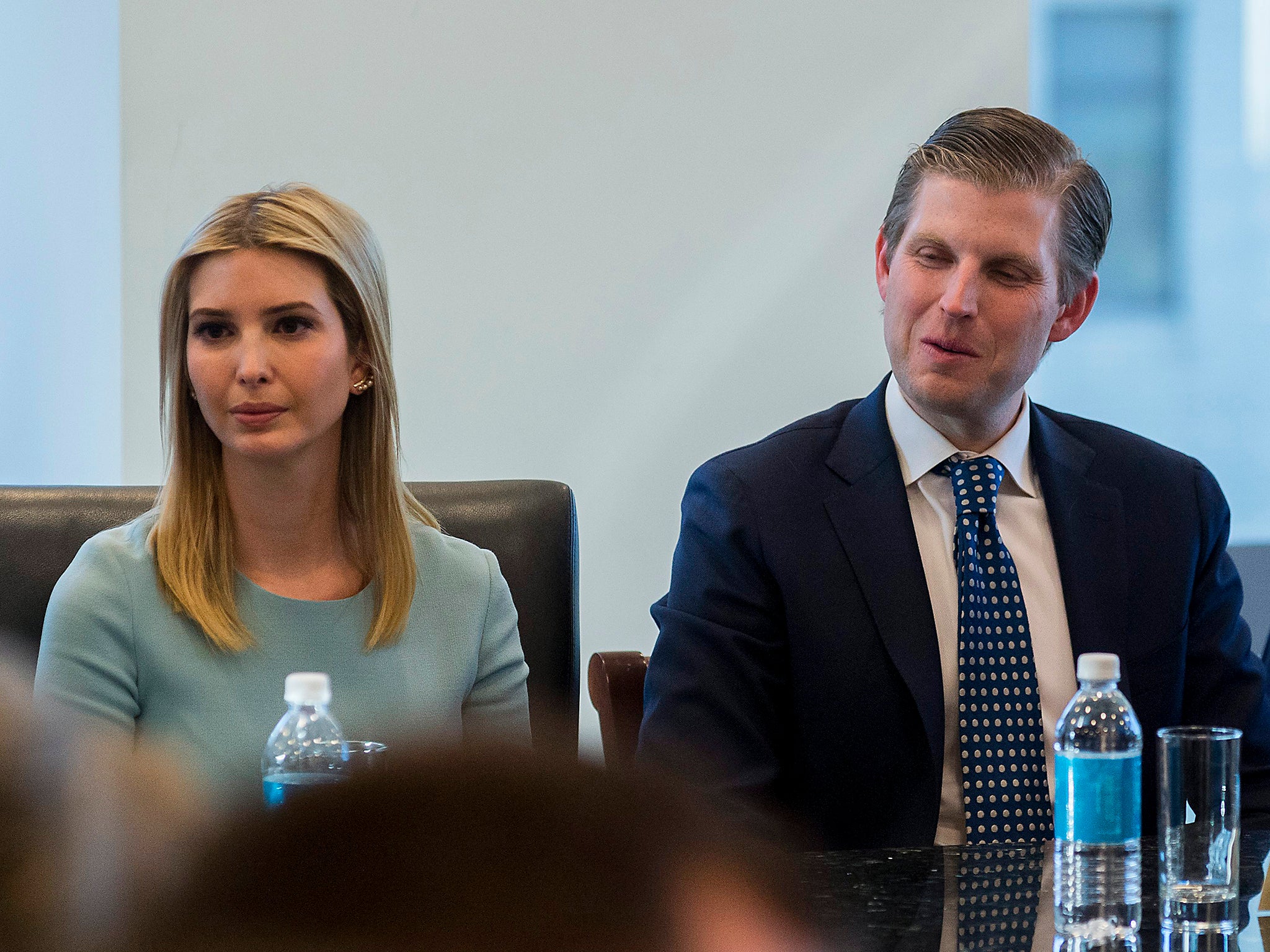
Finally, there is the question of whether the Trump Organisation will attempt any deals in China during the next four years. In 2011, Eric Trump publicly stated that the family company planned to expand its brand into China after the completion of the Manila project. That building is almost finished, meaning the Chinese could well be expecting contacts from the Trump family soon. What Trump and his transition team don’t seem to understand is that it does not matter whether Siting’s trip was authorised, whether Donoghue was in attendance, whether there are discussions going on now or whether contracts are about to be signed. Just the suspicion that Trump might re-establish formal relations with Taiwan for the financial benefit of his children – or might use it as a bargaining chip for landing the kind of development deals on the mainland that Eric Trump discussed – will now be part of the foreign policy calculations in Beijing, as officials there attempt to deal with the new US president.
The conflicts between the commercial interests of the Trump family and US foreign policy extend beyond the many financial benefits for the next president and his children. Already, there is a situation in which the president of the United States could be blackmailed by a foreign power through pressure related to his family’s business entanglements.
In 2008, the Trump Organisation struck a multimillion-dollar branding deal with the Dogan Group, a large corporation named after its influential family, for a two-tower complex in Istanbul. In 2012, Turkish President Recep Tayyip Erdogan presided over the opening ceremonies and met with Trump. But in June of this year, Erdogan called for the Trump name to be removed from the complex because of his anti-Muslim rhetoric; the Turkish president also said presiding over the dedication had been a terrible mistake. Erdogan later told associates he intended to impede America’s use of a critical air force base in Turkey should Trump win the presidency, a Middle Eastern financier with contacts inside the Turkish government told Newsweek. The financier spoke on condition of anonymity to avoid jeopardising relations with his official contacts.
In July, members of the Turkish military attempted a coup. Erdogan crushed the plotters, and his government has arrested more than 36,000 suspected participants and shut down 17 media outlets. The primary culprit, Erdogan declared almost immediately, was Fethullah Gülen, a 77-year-old Muslim spiritual leader who has lived in Pennsylvania’s Poconos region for many years. Erdogan demanded that the Obama administration extradite Gülen to face charges related to the coup.
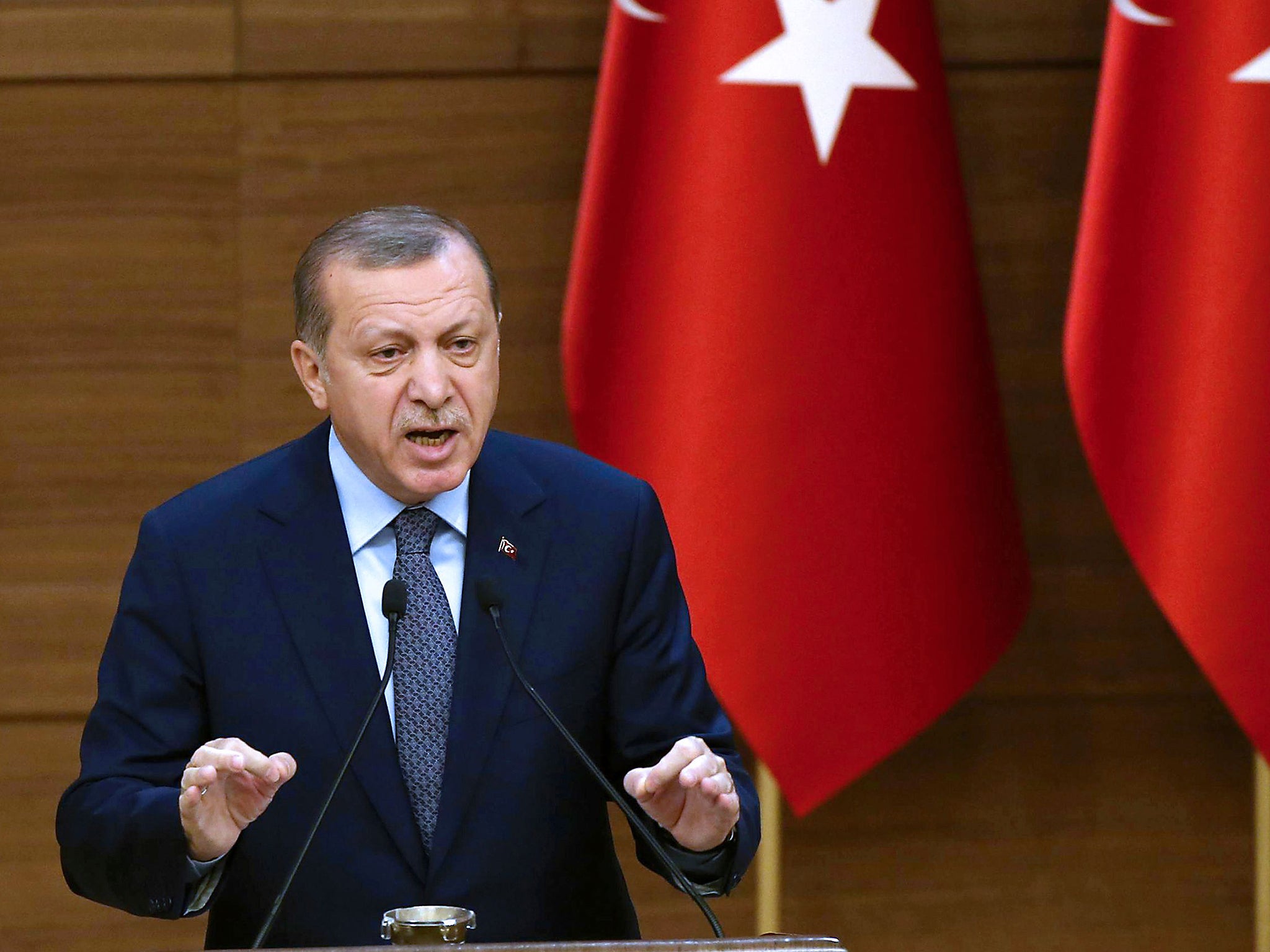
Gülen and Erdogan were allies until 2013, the year a series of corruption investigations erupted regarding government officials accused of engaging in a “gas for gold” scheme with Iran; Erdogan claimed the man with whom he once shared common goals was the driving force behind the inquiries, which he called an attempted “civilian coup”. Erdogan has placed Gülen on the country’s list of most-wanted terrorists, but the Obama administration has not acted on the extradition request, and it has told the Turks they would have to produce proof of Gülen’s involvement in the coup attempt before he could be sent to Ankara, the Turkish capital.
Enter Donald Trump. The day of the US election, the news site The Hill published an article by Lieutenant General Michael T Flynn, who has since been named as Trump’s national security adviser. “The forces of radical Islam derive their ideology from radical clerics like Gülen, who is running a scam,” Flynn wrote. “We should not provide him safe haven ... It is imperative that we remember who our real friends are.” (Flynn, who runs a consulting firm hired by a company with links to the Turkish government, seems unaware that radical Islamic groups like Isis are more likely to decapitate someone like Gülen.)
That article, according to the financier with contacts in the Turkish government, led Erdogan and his associates to believe a Trump administration would not demand more evidence to justify deporting Gülen. So, almost immediately, Erdogan stopped condemning Trump and instead voiced support for him. The day after the US election, Turkish Prime Minister Binali Yildirim issued a statement directly linking his country’s good wishes for Trump with its desire to get Gülen back. “We congratulate Mr Trump. I am openly calling on the new president from here about the urgent extradition of Fethullah Gülen, the mastermind, executor and perpetrator of the heinous July 15 coup attempt, who lives on US soil.”
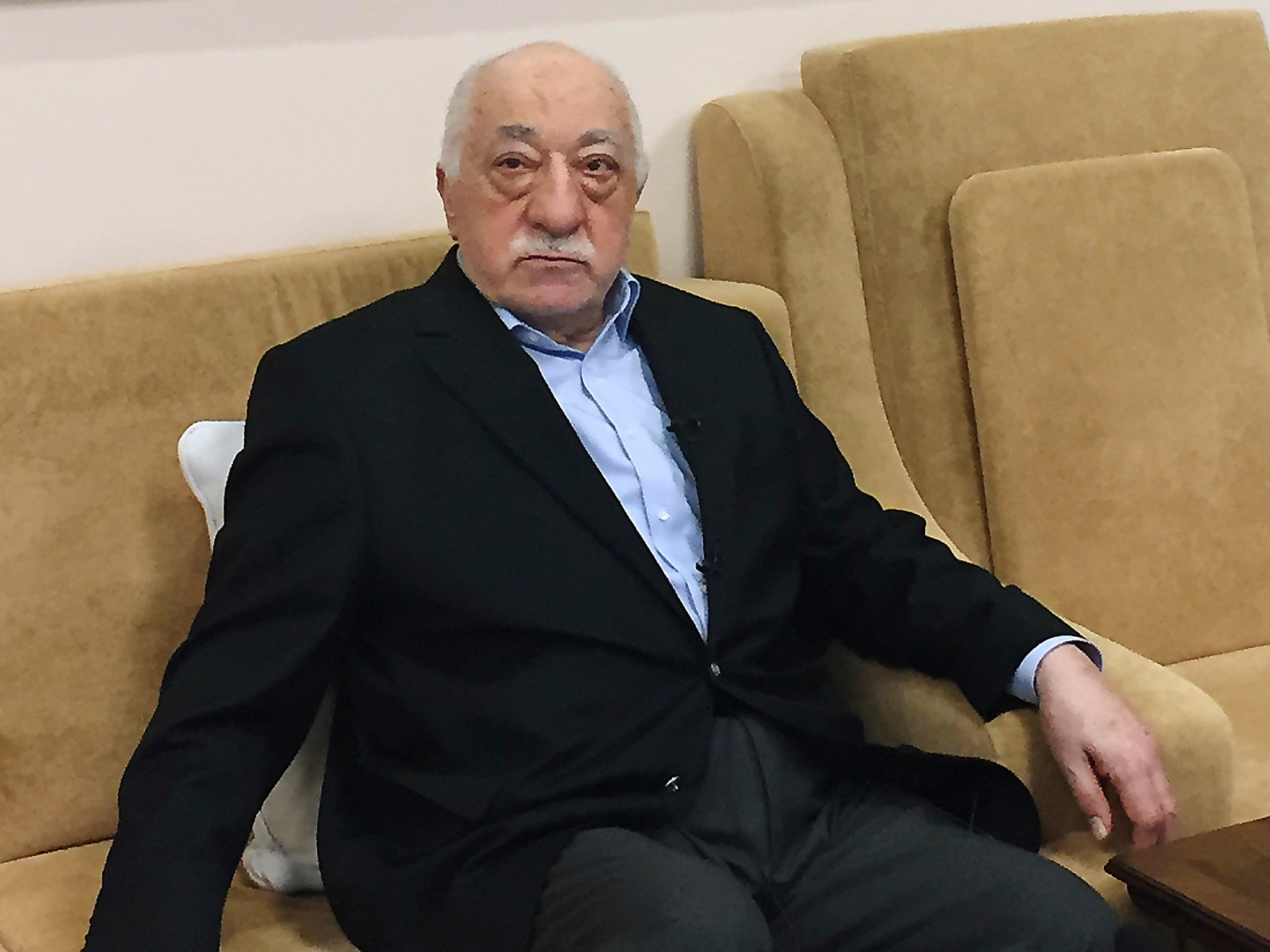
In a telephone call that same day with Erdogan, Trump passed on compliments to the Turkish president from a senior official with his company’s business partner on the Istanbul project, whom the President-elect was reported to have called “a close friend.” The official, Mehmet Ali Yalcindag, is the son-in-law of Dogan Holding owner Aydin Dogan and was instrumental in the development of the Trump complex in Turkey. That Trump delivered messages from his business partner to Erdogan has been reported in numerous media outlets in Turkey, including some closely tied to the government, and has not been denied by Turkish officials or the Trump transition team.
According to the Middle Eastern financier with contacts in the Erdogan administration, Trump’s casual praise of a member of the Dogan family prompted Erdogan to believe this relationship might give him leverage over the President-elect. In the past, Erdogan has placed enormous pressure on the Dogan Group, which owns media operations that have been critical of him, by imposing a $2.5bn tax fine and calling for supporters to boycott its newspapers and television stations. Then, just weeks after hearing Trump’s kind words about his Dogan business partner, Erdogan lashed out at the Turkish company again.
On 1 December, authorities detained Barbaros Muratogl, a 28-year veteran of Dogan who was the company’s representative to Ankara. His alleged crime? Maintaining links to the movement led by Gülen, thus connecting the Dogan executive to the attempted coup. In response, Dogan shares fell 8.6 per cent. (The purported evidence against Muratogl: public accusations from an editor at a newspaper owned by a company that competes with Dogan.)
Once again, follow the dominoes as they tip over. Erdogan is frustrated in his efforts to grab Gülen; Trump praises a Turkish executive who works with his business partner there, Dogan. A few weeks later, a senior Dogan executive is detained on threadbare allegations. If Erdogan’s government puts more pressure on the company that’s paying millions of dollars to Trump and his children, revenue flowing from the tower complex in Istanbul could be cut off. That means Erdogan has leverage with Trump, who will soon have the power to get Gülen extradited. The financier with contacts in the Turkish government explained the dynamic to Newsweek: “Erdogan has something he believes Trump wants, and Trump has someone Erdogan desperately wants.”
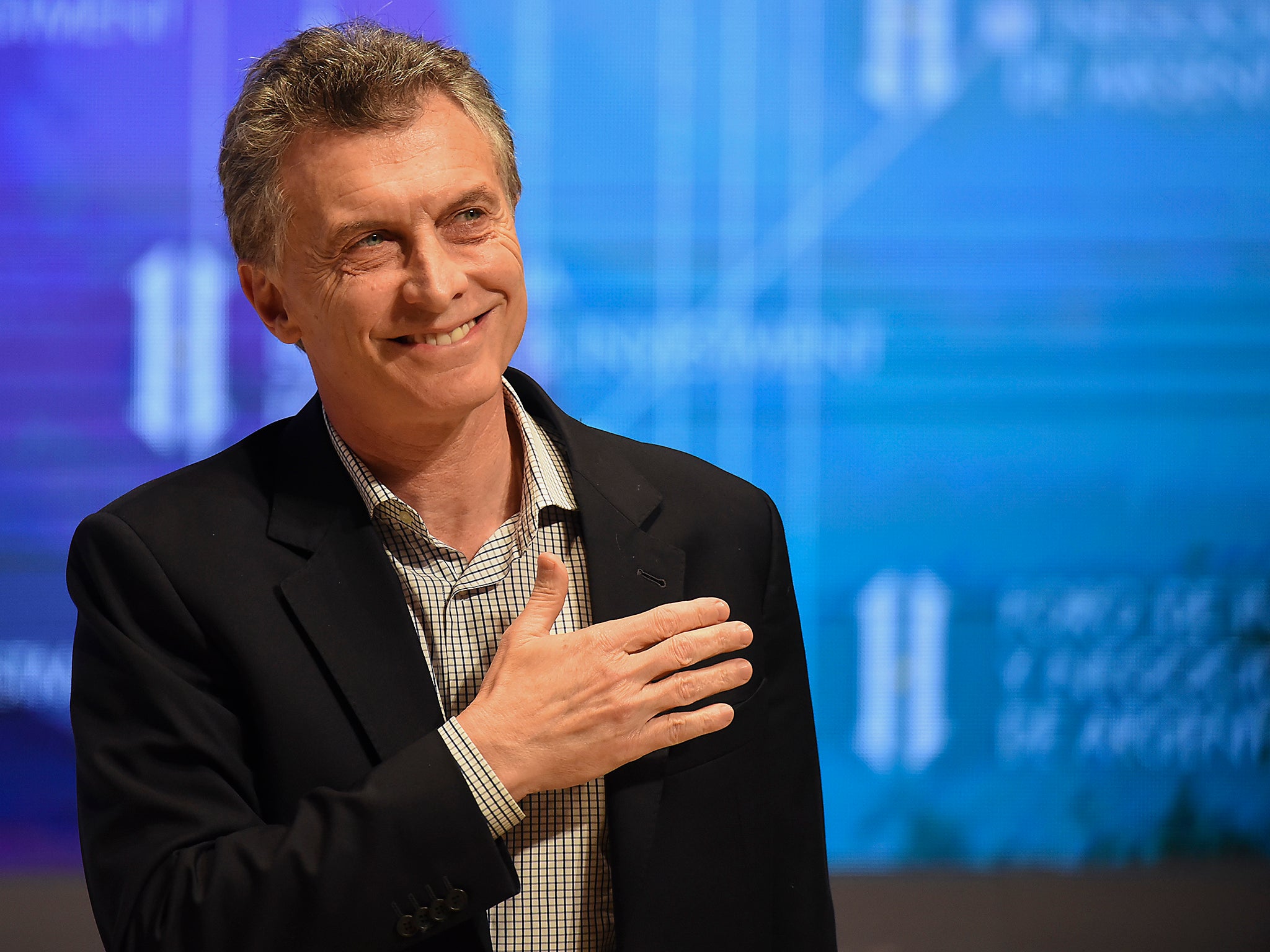
With US security and foreign policy already jeopardised by the President-elect’s conflicts, a few horrifying instances of potential corruption and abuse of power seem quaint by comparison. For example, in a stunning breach of protocol, Ivanka Trump – who supposedly will be on the other side of the dividing line between the Trump businesses and the Trump presidency – sat in on her father’s first meeting with Japanese Prime Minister Shinzo Abe shortly after the election. At the same time, officials with her clothing company were working on a licensing agreement with Sanei International. The largest shareholder of Sanei’s parent company is the Development Bank of Japan, which is wholly owned by the Japanese government headed by Abe.
Another source of potential corruption that could set off a constitutional crisis is in Argentina. That country’s president, Mauricio Macri, has known Trump for decades because he is the son of one of the President-elect’s former business associates. (Macri, who is a conservative, supported Hillary Clinton in the election because he didn’t like Trump’s anti-immigration stance.) For years, Trump has been trying to get an office project going in Buenos Aires but has not been able to gain all the necessary government permits. Instead, his Argentine partners financed a Trump building in Uruguay.
Trump and Macri spoke by telephone on 14 November, just after the election. Days later, Jorge Latnata, one of Argentina’s most respected journalists, reported on the television programme Periodismo Para Todos (“Journalism for All”) that Trump asked Macri during the call to deal with the permitting problems that were holding up the Buenos Aires project. Officials for Trump and Macri both denied Trump said it; Reuters subsequently reported that Ivanka Trump was on that call, even though she has no official or proposed government role.
Just three days after the phone call, a major Argentine newspaper, La Nacion, reported that after years of delay, the project in Buenos Aires was ready to go. Trump’s partners with YY Development Group announced that all but a few administrative problems had been cleared and that they expected to break ground in July. If Argentine officials issued any permits for this project after the US election – or do so at any time in the next four years – Trump could once again be in violation of the Emoluments Clause. That the funding for the project ultimately came from the Argentine businessmen (Trump’s partners) would not change the fact that the government was responsible for raining down riches on the Trump family.
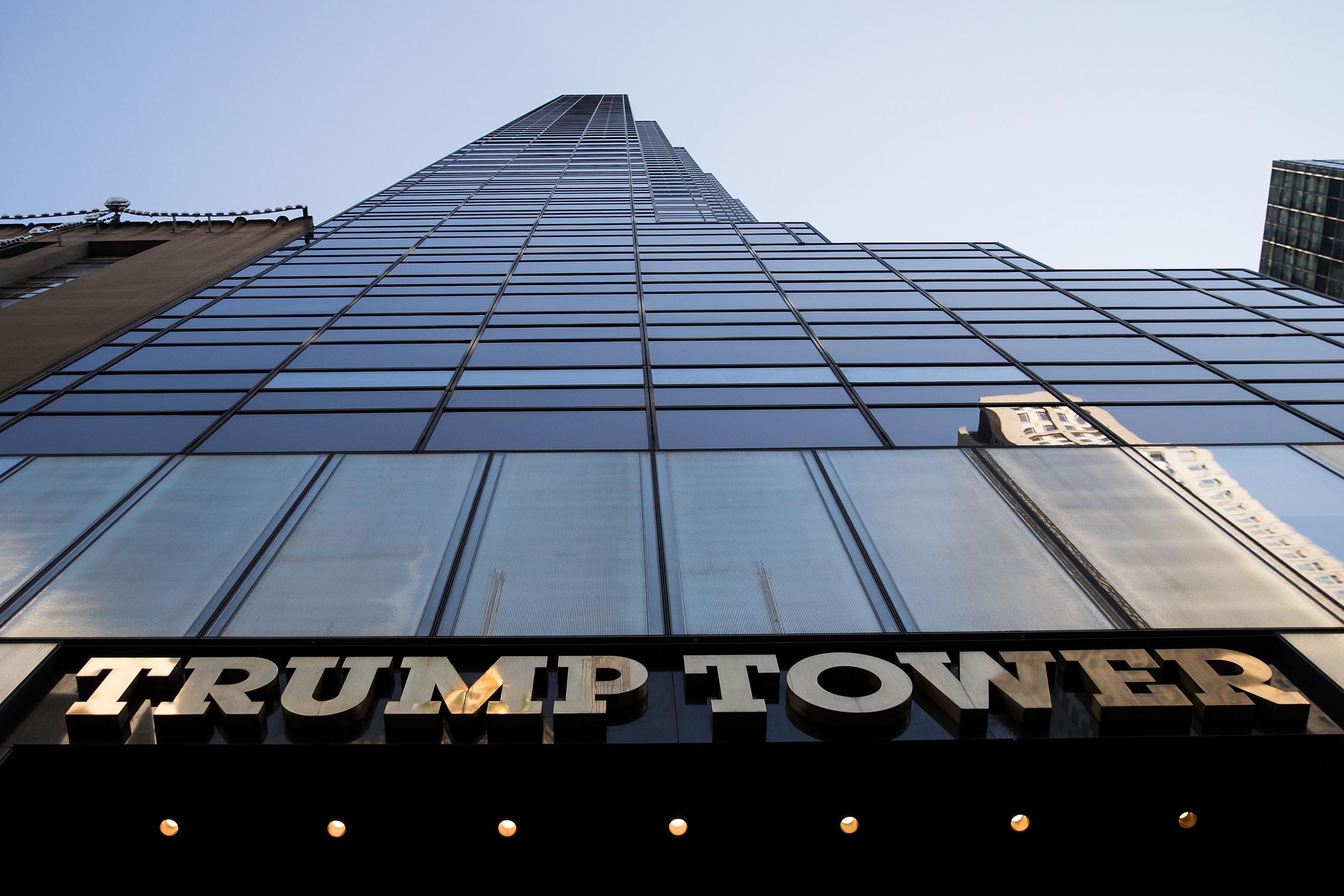
Given the extraordinary power Donald Trump now wields, it’s obvious that foreign governments and corporations can easily curry favour, bribe or even blackmail him, which is why the Founding Fathers so feared outside influences on the executive branch. Once he’s president, Trump does not need to ask for cash to be delivered to his pockets or to those of his children to cross the line into illicit activities – and possibly impeachable offences. Macri of Argentina cannot know if his country will be punished by the Trump White House if the remaining permits for that Buenos Aires project are denied. Abe of Japan does not know if a government holdup of Ivanka Trump’s deal with Sanei International will lead her impulsive father to call for an American military withdrawal from his country. Erdogan of Turkey has told associates he believes he must keep pressure on Trump’s business partner there to essentially blackmail the president into extraditing a political enemy. Duterte of the Philippines believes he has received approval from the President-elect to, at best, abide by or, at worst, continue to authorise the frenzied slaughter of drug users and dealers, and knows he can harm the Trump family if the president ever angers him.
America is on the precipice of an unprecedented threat, as allies and enemies alike calculate whether they are dealing with a president they can please merely by enriching his children. President-elect Trump has a monumental choice before him: he can, as he promised during the campaign, protect the sanctity of the presidency – which he can do only by selling his company. Or he can remain corrupted by the conflicts between his country’s future and his family’s fortune.
© Newsweek
Join our commenting forum
Join thought-provoking conversations, follow other Independent readers and see their replies
Comments